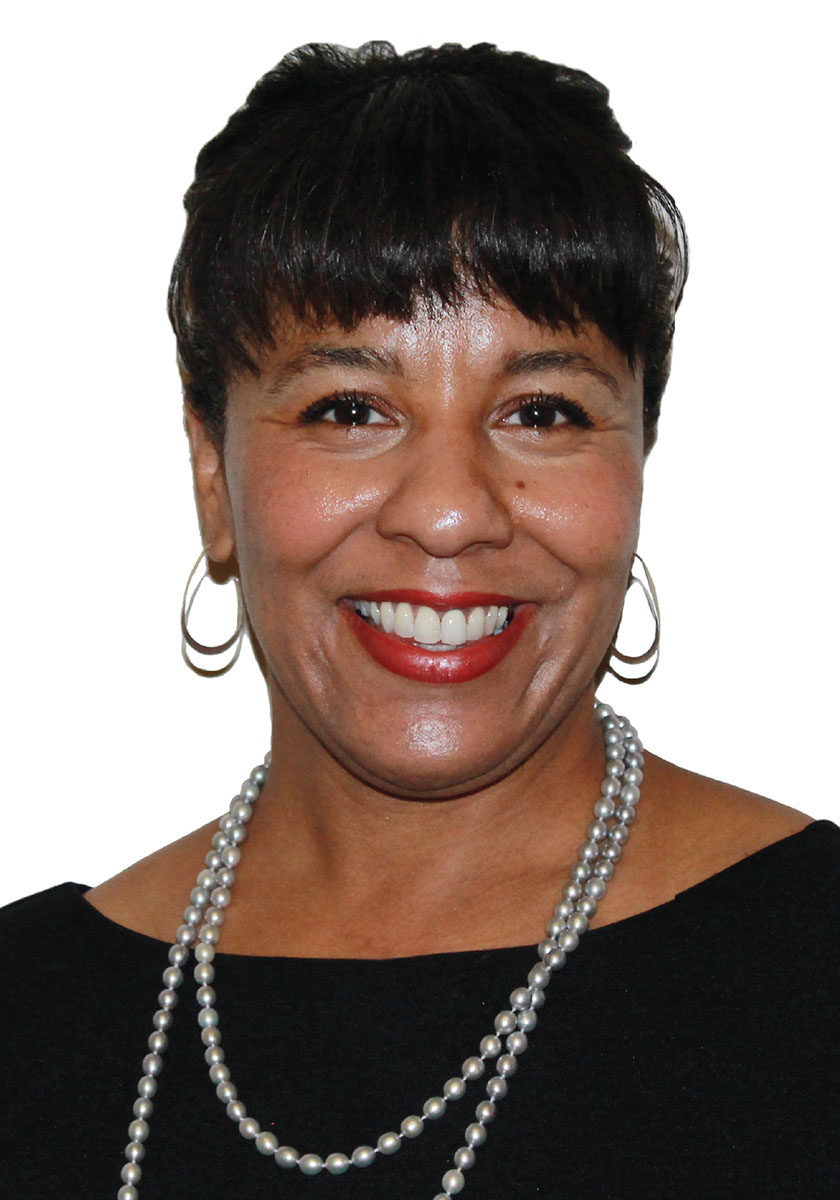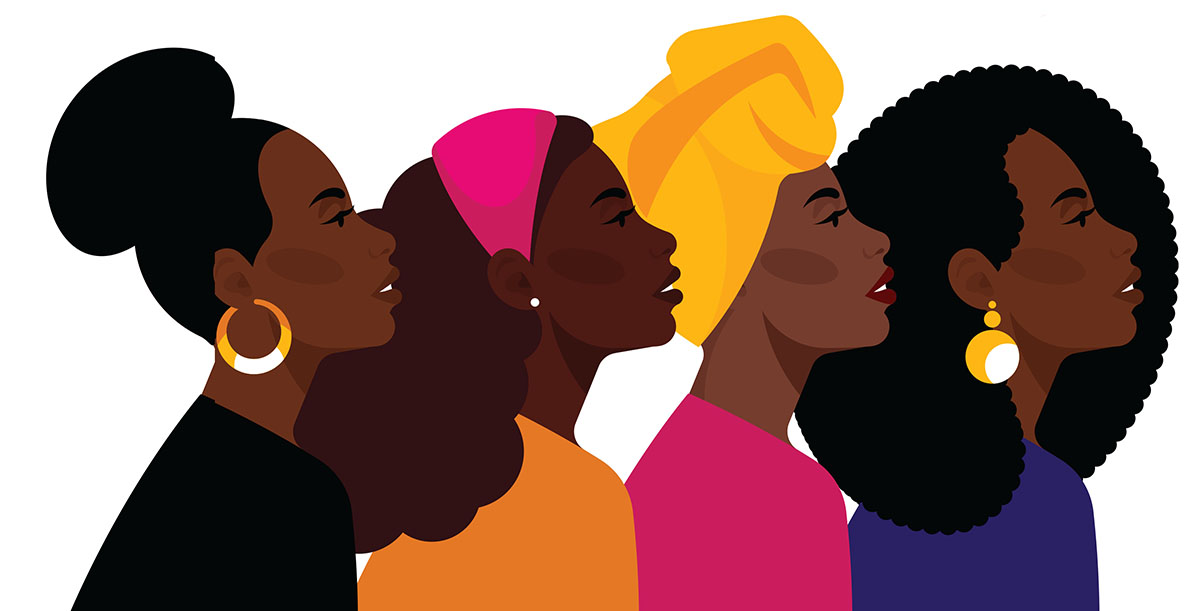
My world is all about colour. Whether I produce artworks, curate, sell, inspire, or lecture, the arts are my life and I love to share my ideas, thoughts and creations.
Throughout my career I have often found I was the only black person in the room - or one of very few. I tend not to meet other black artists or other black gallery owners. I rarely meet other black businesswomen. Although this can make one feel ’unique’, it can also be a little perplexing.
Too many black people are still not invited to the tables of change. How do we empathise with others when we haven’t shared their experiences? How can we change our organisations and businesses to provide opportunities to others and be more inclusive?
I have spent many years ignoring this issue in order to progress in my career and be accepted. But I am pleased to say that – today – the news agenda is changing and people are now eager to discuss the issue of diversity in the workplace.
The fact remains that black people are absent from, and frequently under-represented, in many UK companies. And if we are not there then our voices cannot be heard and we cannot be counted. If we are always on the margins, we will continue to be seen as ‘different’ or ‘exotic’, or ‘other’.
How can young people aspire to be the best if they see far too few people like them in significant or influential positions?
As TV Dragon, Deborah Meaden, says: “Don’t label yourself. There are prejudices against all sorts, all around us. You give power to prejudice by recognising it. If you ignore it, it is an amazingly powerful thing. I’m in business-full stop. And that’s the strongest message you can send.”
But in the case of ethnic diversity, such prejudice cannot be ignored. The statistics speak volumes. As of February 2021 there were no black CEOs in any of Britain’s 100 largest companies. The percentage of black executive directors and non-executive directors at FTSE-100 firms (including board and executive committee level positions) has actually dropped from 1.3% to 1.1% in the last six years. The USA fares better than UK companies but there are still only four black CEOs at Fortune’s 500 companies.
A Danish study published in the American Economic Journal discovered that bias in the hiring process leads to selecting colleagues of the same ethnicity, even if not appropriate for the vacancy. On the other hand, positive discrimination can cast black people as window dressing, undermining their abilities and encouraging imposter syndrome. Being the only one of few can lead to undue scrutiny of performance by colleagues and engenders the constant need to prove oneself.
Trevor Phillips, the former chair of the Equality and Human Rights Commission, said: “We know there is no shortage of qualified candidates to fill these roles if companies are willing to look. Yet the snowy peaks of British business remain stubbornly white.”
Phillips said the lack of black leaders at Britain’s biggest businesses makes talented black employees think they would not be able to advance in their careers, looking instead to smaller companies, or the US.
Each of us has a different heritage and we will belong to various tribes throughout our lives as we search to belong and be loved. Black history can make it difficult for us to find our tribes and as a result, we can become an island. This tribal tendency leads to a bias to attract and work with people similar to ourselves and our own upbringing. Perhaps this is why most of the UK government are private school educated and even come from the same educational establishments?
We live in a multicultural Britain, yet many of our professional industries lack diversity. As we are still fighting for women’s equality, I feel it might take time to address the issue of ethnic visibility. Diversity should be woven into every organisation. Simply comparing current race issues with the past assumes that institutional racism no longer exists. But the evidence is to the contrary - black people are over-policed as citizens but under-policed as victims.
So, how can we redress the balance?
Companies can no longer afford to ignore the benefits of diversity. Consulting firms McKinsey & Co and Deloitte LLP have clearly demonstrated that diversity is associated with better financial outcomes and company cultures. Diverse leadership leads to all staff feeling more included. It can guide companies to be more progressive and enable them to discover new markets, new products and new ways of doing business. Success hinges on finding advocates with people in power.
How diverse is your business or organisation? The Race at Work Charter website contains a wealth of advice on improving diversity within and across organisations.
It is often assumed that the best person for a CEO position has already been in that role but in fact, first-time CEOs of public companies often perform better than those who have previously served in such roles. These opportunities should be made available to a more diverse range of candidates while nurturing and supporting them in such positions.
I would encourage all businesses to support programmes to raise the awareness of black businesses, initiatives such as Black Pound Day, a campaign which encourages consumers to support Black-owned enterprises, runs on the first Saturday of each month.
Let’s be progressive and part of the change. Let’s bring colour into our businesses and embrace the rich tapestry that different cultures and diversity can bring.
Kellie Miller is a critic, curator, artist and owner/director of Kellie Miller Arts (KMA) the award-winning, independent, contemporary gallery in The Lanes, Brighton. She has been a professional artist since 1994 and her work has been exhibited extensively in the UK and abroad including Taiwan, Japan and the UK. Kellie holds an MA in Arts Criticism and is an associate lecturer on Goldsmiths’ MA Creative and Cultural Entrepreneurship, mentoring their students to develop business ideas in creative and cultural fields.
Kellie Miller, Director
Kellie Miller Arts
20 Market Street, Brighton
Gallery: 01273 329384
Studio: 01273 720625
Mobile: 07803 589059




